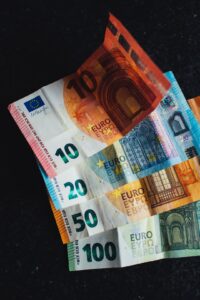Forex markets in Pakistan are an important economic indicator and play a significant role in the country’s economic growth and stability. Central banks, as the main regulatory institutions, have a huge impact on the forex market, and their decisions can greatly influence the value of a currency.
The State Bank of Pakistan (SBP) is the central bank of Pakistan and is responsible for regulating the country’s monetary policy. The primary objective of the SBP is to maintain price stability and promote economic growth. The bank achieves this by regulating the money supply, keeping inflation in check, and ensuring the stability of the exchange rate.
One of the ways in which the SBP influences the forex market is through its open market operations. Open market operations are a tool used by central banks to manage the money supply in the economy. The SBP can buy or sell government securities in the open market to influence the money supply and interest rates. When the SBP buys government securities, it injects money into the economy, increasing the money supply and lowering interest rates. This can lead to an increase in consumer spending and investment, which can boost economic growth. Conversely, when the SBP sells government securities, it withdraws money from the economy, reducing the money supply and raising interest rates. This can help to control inflation by reducing consumer spending and investment.
Another way in which the SBP influences the forex market is through its intervention in the foreign exchange market. The SBP can buy or sell foreign currency to regulate the exchange rate. When the SBP buys foreign currency, it increases the demand for that currency, which can lead to an appreciation in its value. Conversely, when the SBP sells foreign currency, it increases the supply of that currency, which can lead to a depreciation in its value.
The SBP also sets the official exchange rate for the Pakistani rupee. This rate is used as a benchmark by commercial banks and other financial institutions when conducting foreign exchange transactions. The SBP can adjust this rate to influence the value of the rupee against other currencies. For example, if the SBP wants to increase the value of the rupee, it can set a higher exchange rate, making it more expensive for foreigners to buy Pakistani goods and services. This can reduce imports and increase exports, stimulating economic growth.
In addition to the SBP, other central banks around the world also have an impact on the forex market in Pakistan. The US Federal Reserve, for example, is one of the most influential central banks in the world. Its decisions on interest rates and monetary policy can have a significant impact on the value of the US dollar and other currencies. As the US dollar is one of the most widely traded currencies in the forex market, any fluctuations in its value can have a ripple effect on other currencies, including the Pakistani rupee.
Central banks also play a role in regulating the forex market to ensure that it operates in a fair and transparent manner. They set rules and regulations to govern the conduct of financial institutions and traders in the forex market, and can take action against those who engage in fraudulent or illegal activities. This helps to maintain the integrity of the market and protect investors and consumers.
In conclusion, central banks, including the State Bank of Pakistan, play a vital role in the forex market. They use various tools and strategies to regulate the money supply, control inflation, and influence the value of currencies. Understanding the role of central banks in the forex market is essential for investors and traders who want to navigate the market effectively and make informed decisions.






